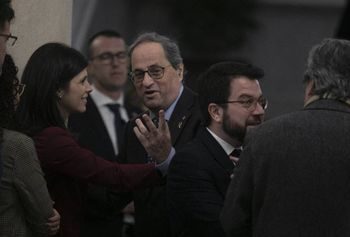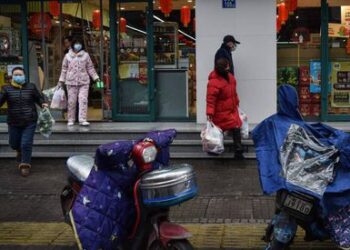
The United Nations climate change conference known as COP25 opened in Madrid on Monday after it was moved to the Spanish capital from Santiago de Chile, which had to cancel due to a wave of deadly street protests. Before that, Brazil had dropped its plans to hold the event.
The summit brings together over 25,000 representatives from around 200 countries from December 2 to 13, and seeks to reach agreements to tackle the effects of global warming and keep it within manageable limits.

Speaking at the event, caretaker Prime Minister Pedro Sánchez, of the Socialist Party (PSOE), said: ”These days, Madrid will be the capital of the fight against climate change and for a real commitment. But above all it wants to be the capital of dialogue and words.”
“For years, several versions of climate change denial were in circulation. Today, luckily only a handful of fanatics deny the evidence,” he added. “No one can escape this challenge by themselves. There is no wall that can protect any country, regardless of how powerful it is.”
“If Europe led the industrial revolution, Europe must lead the decarbonization [effort]. At a moment marked by the silence of some, Europe has a lot to say,” said Sánchez.
The gathering, which remains under the presidency of Chile, takes place at a time when there is a noticeable lack of international leadership in the fight against climate change. US President Donald Trump has taken the first steps to pull his country out of the Paris Agreement, China is not showing interest in making further cuts to its greenhouse gas emissions, Russia has yet to show the UN its own reduction program, and the EU member states haven’t agreed on the net-zero carbon dioxide emissions goal for 2050.
Greta Thunberg
At the same time, public awareness about the effects of climate change is greater than ever thanks to the work of civic leaders like the teenage activist Greta Thunberg – who is expected to show up at the Madrid meeting – and to the visible effects of adverse weather events across the globe.
The COP25 meeting was partly meant to offset the feeling that the fight against climate change “is an imploding process,” in the words of Spain’s acting minister for the ecological transition, Teresa Ribera.
But there are other goals. UN Secretary General António Guterres said on Sunday that “we need to increase the urgency and ambition of our efforts.” The meeting should finish developing the Paris Agreement to make it fully operational.

Countries’ original emission-cutting plans are not ambitious enough to keep global warming below 2ºC from pre-industrial levels, and they are up for review next year. This summit will seek pledges from government leaders to take further action to achieve net-zero CO2 emissions by mid-21st century under a 1.5 degree change scenario.
Brazil, Chile, Netherlands, Spain
Brazil was originally going to host the COP25, but President Jair Bolsonaro withdrew the offer shortly after his election. And when Chile also announced it was canceling due to the scope of the protests against the Sebastián Piñera administration, the Netherlands offered to host the event – but only on condition that it would also hold the presidency. The Spanish government stepped up, and said it was happy to let Chile preside the conference.
“Our familiarity and brotherhood with Latin American countries was essential [in the decision]. For Spain it’s not a problem at all to have Chile preside the meeting in Madrid,” said a source at La Moncloa, the seat of the Spanish government.
United Nation island in Madrid

Patricia Gosálvez
The gathering is taking place at the Madrid convention center Ifema, where the predominant color is now blue to mark the association with the United Nations. “This is no longer Spanish territory,” said Minister Ribera at an event on Saturday to symbolically hand over the keys of Ifema to the international organization.
“Now this is like an embassy and we are the housekeepers,” said Clemente González Soler, president of Ifema. Any wrongdoers will be detained by UN security agents, who will hand them over to the Spanish national police standing outside the fenced perimeter.
The last-minute organizational effort comes as Spain continues to function under a caretaker government following the repeat general election of November 10. Sánchez is racing to find enough parliamentary support to get himself confirmed in office and avoid a new repeat vote. The country’s prolonged political paralysis means, among other things, that there is still no climate change law in effect.
Despite a new right-wing administration in the Spanish capital that has taken steps back in an environmental plan known as Madrid Central, authorities and political leaders worked in tandem to make this event happen.
“This summit consolidates Spain as a country that is committed to global governance and multilateral forums, besides reflecting our unequivocal commitment to a fair ecological transition,” said Irene Lozano, secretary of state for the Global Spain brand.
English version by Susana Urra.
Get real time update about this post categories directly on your device, subscribe now.





















